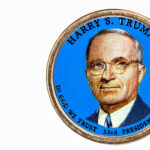On June 17, 1930, U.S. President Herbert Hoover signed into law one of the most contentious pieces of legislation in American economic history, the Smoot-Hawley Tariff Act. Named after its sponsors, Senator Reed Smoot and Representative Willis C. Hawley, the Act aimed to protect U.S. farmers and other industries from foreign competition by raising import duties to record levels.
The economic context during which the Act was signed was a pivotal factor. The United States was beginning to feel the effects of the Great Depression, and there was immense pressure to protect American jobs and industries. Hoover, despite his initial reservations, signed the Smoot-Hawley Tariff Act with the intention of boosting the struggling economy.
However, the legislation quickly sparked controversy. Critics argued that the high tariffs would stifle international trade, and indeed, many foreign governments retaliated by raising their own tariffs, leading to a significant decrease in international trade volumes.
The economic fallout was severe. U.S. exports and imports decreased dramatically, contributing to the depth and length of the Great Depression. The tariff act was largely seen as a policy failure, prompting a shift in U.S. trade policy towards multilateral trade liberalization in the subsequent years.
In signing the Smoot-Hawley Tariff Act, Hoover hoped to insulate the U.S. economy from the global economic downturn. However, the Act’s unintended consequences resulted in a worsening of the very economic crisis it sought to alleviate.
References:
https://www.senate.gov/artandhistory/history/minute/Senate_Passes_Smoot_Hawley_Tariff.htm
https://www.britannica.com/topic/Smoot-Hawley-Tariff-Act
https://www.politico.com/story/2014/06/this-day-in-politics-herbert-hoover-smoot-hawley-act-107908




